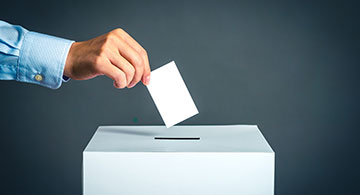 Canada, a country with a vast land area and rich diversity has been through many ups and downs. This is a country that has given many immigrants a chance to call it home.
Canada, a country with a vast land area and rich diversity has been through many ups and downs. This is a country that has given many immigrants a chance to call it home.
As an immigrant in this country we now call home, we have a responsibility to contribute to its society. Thus, this month’s column will talk about why Canada should consider changing its electoral process.
How the Federal Electoral process works is that the Governor General summons and appoints 105 Senators on the advice of the Prime Minister. 338 Members of the House of Commons called the Members of Parliament (MPs) are each elected by their electoral district. My column is open to your constructive views so please feel free to send an email to the address noted below.
We know this is going to be a sensitive topic so let us dive into how we can help improve this system. As we all know, there are those in Alberta who have been clamouring to separate from Canada.
And honestly, why do you think this idea would even make its way into mainstream media? For the simple reason that the people of the province think their voices are not heard by the Federal Government.
Why would they even think that way? The reason for this thinking is simple, the Prime Minister of the Country is elected by the winning Party who holds the most number of seats in the House of Commons. Makes sense, right? It does make sense until we try to dissect it. If the Prime Minister is elected by the Party who won the Majority of the Seats in the House of Commons, how many of these seats are in one Province?
Let us be honest, Canada has a huge land area but a large concentration of the population is in Ontario, Quebec, British Columbia then Alberta with Nunavut at number 13. Based on the 2019 Quarter 2 statistics, Ontario currently has 121 Seats in the House of Commons, while Quebec has 48. British Columbia has 42, Alberta has 34 and there is only 1 seat for the 13th province, Nunavut.
There is a very clear imbalance. Look at how both Ontario and Quebec are in Eastern Canada. If you add their seats up, 121 plus 48 gives them 169 seats in the House of Commons. In Western Canada, if you combine the seats for British Columbia and Alberta there are only 76. So what is my point?
It is very clear that even if you combine the Biggest Provinces of Western Canada to push forward legislation, they have no chance or at least very little chance to win the votes in the House of Commons against their eastern counterparts. So what do I propose changing in the Federal Electoral System?
First let us talk about the Provinces. In each Province there is a Premier, so if there are 13 provinces there are 13 Premiers. If there are 13 then what I would do instead of getting the House of Commons to vote on who will be the Prime Minister? I propose getting all 13 Premiers, the Leader of the House of Commons and the Senate to cast their votes for who the Prime Minister should be. It might sound odd, but remember, the Premiers are elected by the people of each Province so they clearly can represent them.
The Provinces are what make up Canada as a whole.
Due to the big difference in the number of seats in the House, how does the smaller province put forward legislation with one seat in the House? Definitely a long shot right? With 13 seats, at least the Premier of that Province has an equal fighting chance. What about the House of Commons? I believe that to be fair to the House, they get 1 voting seat while another voting seat goes to the Senate.
So how does that work? The House will vote on who will represent them and the Senate, which will bring it to 15 seats. This way, all the Provinces, along with the House and the Senate get a fair chance. I know there are a lot of better ideas out there so please let me know what you think.


